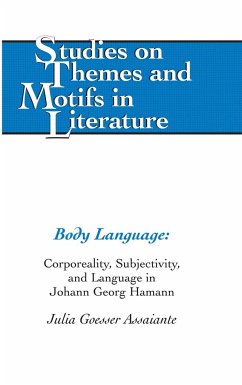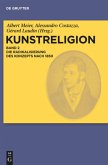Body Language: Corporeality, Subjectivity, and Language in Johann Georg Hamann addresses the centrality of sensual perception to the constitution of subjectivity and the resulting relationship between subjectivity and language in the work of Johann Georg Hamann. In positing the body as the entity that conditions a subject's encounter with the world, Hamann, it is argued, prefigures a notion of finite subjectivity that not only runs counter to the Enlightenment tradition but also reemerges in nineteenth- (Kierkegaard and Nietzsche) and twentieth-century (Benjamin) discourses on the tension between subjectivity and the abstraction of language. The paradox at the heart of this investigation is Hamann's radical circumscription of reason as expressed through language, which nevertheless attempts to recuperate the concept of universal meaning through faith. Language is wrested away from abstraction and, therefore, any universality, and becomes the expression of the finite, corporeal subjectivity, a state of limitation that is at once granted and resolved by a divine creator.
Bitte wählen Sie Ihr Anliegen aus.
Rechnungen
Retourenschein anfordern
Bestellstatus
Storno









